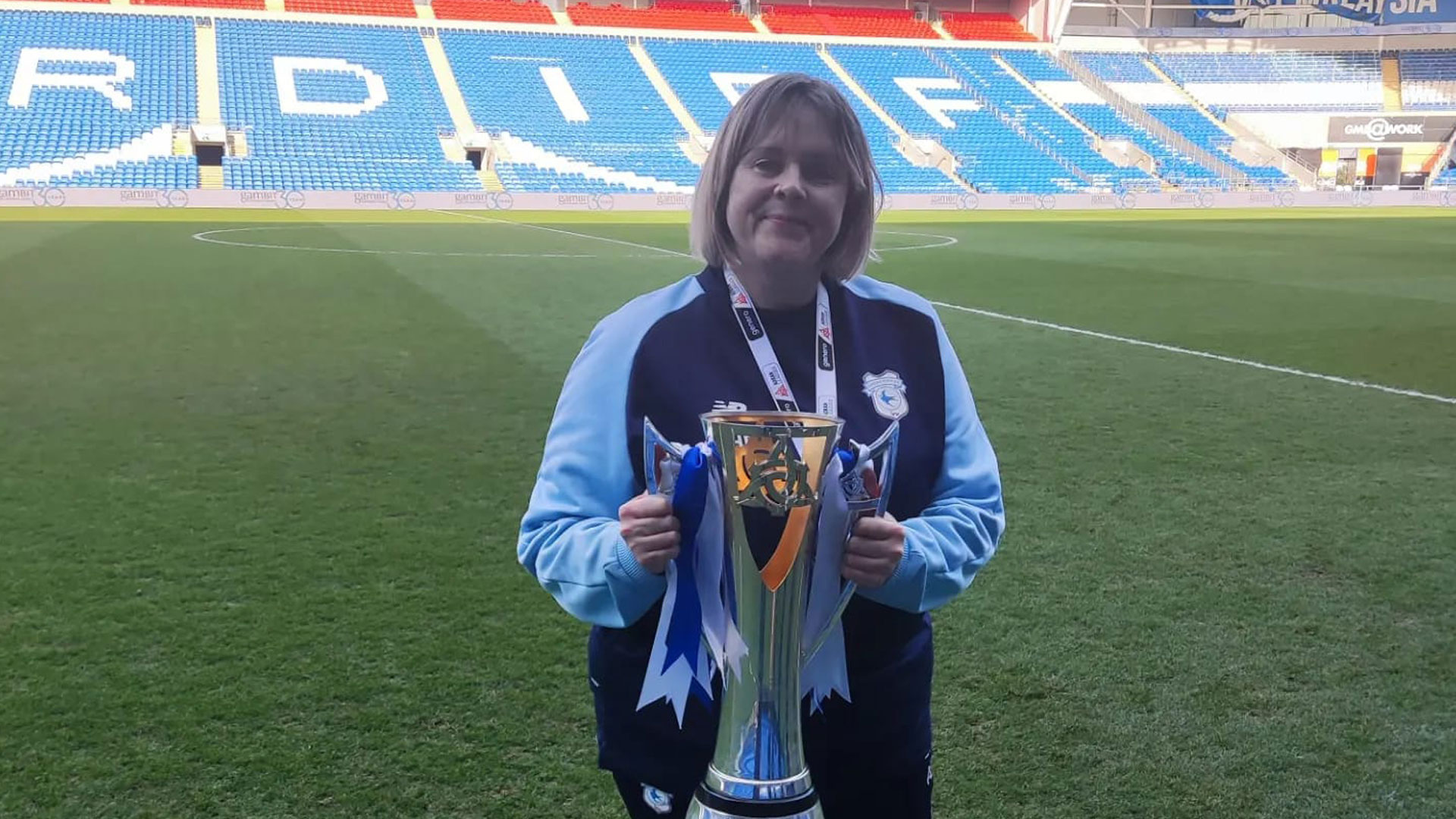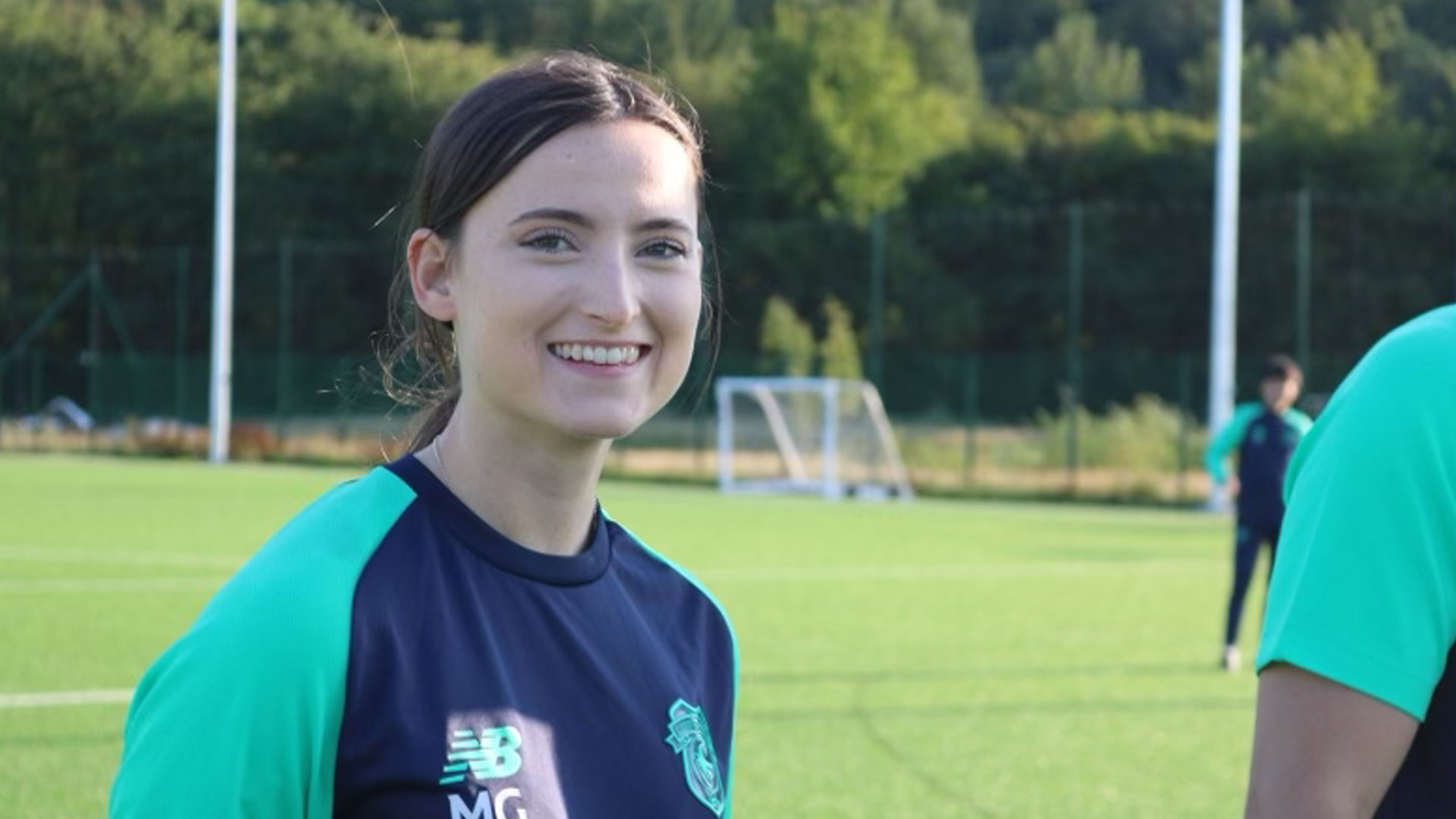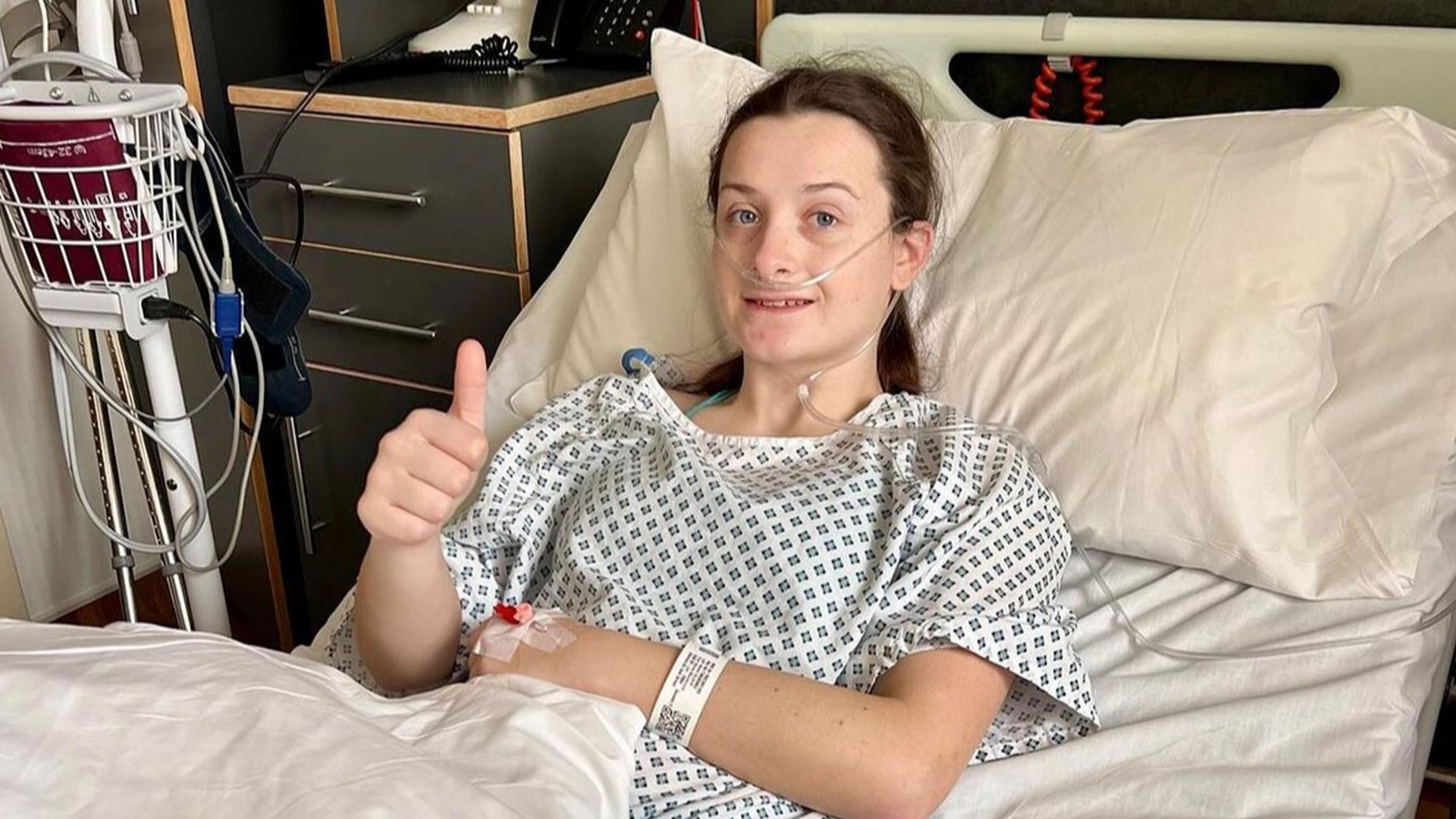City in Focus | An Insight into the Road to Recovery
It’s been a remarkable campaign for the Bluebirds, who have built on the successes of last season to secure back-to-back titles. It hasn’t been a year without challenges however, with City having to deal with injuries to key members in the senior squad.
The likes of Rhianne Oakley, Eliza Collie and Molly Kehoe have all had spells on the sidelines, before returning to fitness and impressing on the field, while summer recruits Mackenzie Olden and Tija Richardson are currently overcoming long-term injuries.
We take a look at the process of recovery and the support of the Club…

THE FIRST STEPS
Whether it be in training or on matchday, as soon as a player suffers an injury, they are monitored and supported by Lead Sports Therapist Aimi Healey-Bracher (pictured), who has been involved with City Women since 2021.
“I assess the player as soon as possible, figure out what I think is wrong and ask for further investigations, for example an MRI scan, if it’s needed,” Aimi began. “Hopefully, it’s something we can manage ourselves, but as we’ve seen this season, sometimes a player might need surgery.
“I put together a rehabilitation plan for the player, which is personalised for them and their specific injury and we amend that plan as we go according to how they’re progressing. It’s very dependent on the player, how they progress in their rehabilitation and how they’re hitting targets. Once we get a player to a certain stage, I’ll speak with Maisie [Gudmunsen] again about the strength and performance markers that they need to hit and she puts together a plan for them to reach those. Maisie and I work together with the players from the point of injury so that the players understand what they can do and what they need to do to get back to performing on the pitch. We are really lucky to have Daisy as psychological support for the players as well; it adds another dimension to how we can support them.
“It’s incredibly rewarding, because we’ve had a tough couple of months with injuries, which can be very stressful, but seeing a player come back to fitness and perform, it’s brilliant.”

BACK ON THE GRASS
After making progress in their rehabilitation plan, an injured player returns to light training with the support of Strength and Conditioning Coach Maisie Gudmunsen (pictured).
“After the initial injury, a priority for us is to develop the strength of the tissue and ensure that players are able to tolerate workload prior to exposing them to the physical demands of the game.
“Once that has been developed, the player can return to a training plan on the pitch, which starts with light running. We monitor their progress through GPS tracking and ensure that they are gradually exposed to physical demands, specific to their position. Rhianne has been a great example this season. We were able to use GPS technology to gradually increase her confidence in reaching maximum speed and meet her performance markers.
“Longevity is also a key factor for us. Not only do we aim for the player to return from injury to meet certain levels of performance, but we also want to ensure the long-term fitness of our players. We do that through our injury prevention strategies, which identify potential weaknesses and allow us to target improvement through prehabilitation exercises.”

PLAYER SUPPORT
A period on the sidelines can also provide mental challenges for a player, but Player Care Officer Daisy Price ensures that support is available to the whole squad.
She added: “It can be incredibly difficult for players when they get injured. I think the initial phase is difficult, but also, people forget about the long-term effects of an ACL injury, for example. Watching training or games and seeing them get results without being able to play, especially at certain times of the season where there are big games, as well as the struggle of trying to get back into the team, it can have a big effect.
“The Club have heavily invested recently in the department of Player Care, especially in the Women and Girls programme, which included my appointment as Player Care Officer, as well as a Chaplin and some mental well-being support, who specialise in sport. We’re on hand all the time, whether be in training or games for any of the girls. We’re especially active when there has been a major injury, because we know how much of an effect it can have on mental health. Through in-person meetings or remotely, there is a player care group and a team to support the girls with any of their needs.”
